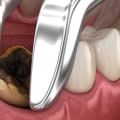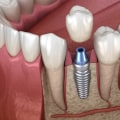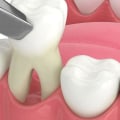A tooth extraction is a common dental procedure that can be beneficial for your overall oral health. After the procedure, you may experience some discomfort, swelling, tenderness, or pain. Most people find that the pain passes after three days, however, this can vary from patient to patient. If you're still in pain after three to five days, consider re-scheduling an appointment with your dentist for a follow-up.
When tooth extractions involve impacted teeth or wisdom teeth, there is a greater risk of pain and infection. After having tooth extraction surgery, for a few days you'll have to get used to eating soft, cold foods to avoid any pain or discomfort. One or more teeth can also “supererupt” or increase in size without the pressure of the extracted tooth holding them in place. The clot should have fully formed a week after the extraction and any stitches that dissolve should have done so by then.
In most cases, the pain or discomfort should have lessened after 7 to 10 days. If you are the most sensitive type, expect persistent tenderness at the extraction site for a longer time. Tooth extractions create a space in the mouth that can distort the alignment of other teeth. Tooth extractions can benefit the health of your entire mouth, from the way you chew your food to the prevention of chronic conditions such as gum disease.
After a tooth is removed, bacteria may enter the extraction site before it has fully healed. Often, dental retainments aren't discovered until they begin to cause cavities or damage surrounding teeth. However, with an experienced dental office and the right after-extraction care, you'll remember the experience and realize that it wasn't difficult at all. Sometimes the only treatment option available that can alleviate pain is the extraction of the tooth itself.






